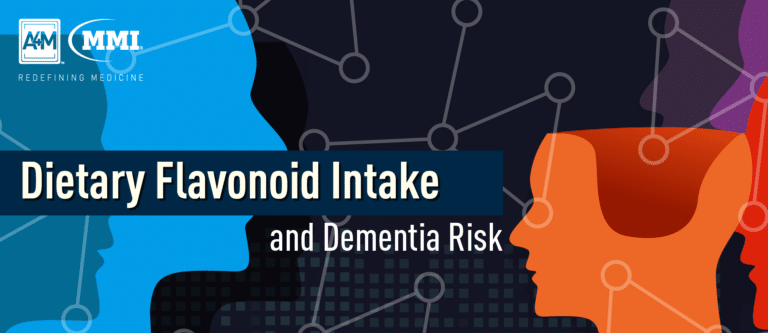Maintaining healthy nutritional patterns is essential for the prevention and management of neurodegenerative diseases; prior research has found that flavonoid consumption may improve cardiovascular health, reduce cancer risk, and provide other health benefits. While previous trials have examined the relationship between dementia and dietary patterns, most have occurred over a short period of time. A new study from researchers at Tufts University examined the correlation over a period of 20 years, finding a positive association between a low intake of flavonoid-rich foods and increased Alzheimer’s risk.
AD and ADRD Risk Tied to Flavonoid Intake
A team of Tufts University researchers evaluated data from 2,800 individuals aged 50 and older to determine the long-term association between dietary flavonoid intake and Alzheimer’s disease and related dementias risk. Data from the Framingham Heart Study Offspring Cohort was used to calculate cumulative average flavonoid intake; Cox proportional hazard models were used to approximate the hazard ratios for the relationship between flavonoid intake percentiles and incidence of Alzheimer’s disease and related dementias.
Recently published in the American Journal of Clinical Nutrition, the findings reveal a correlation between a potential protective relation between total flavonoid intake and the incidence of AD and ADRD. Over the course of the study period – an average follow-up of 19.7 years – there were 193 ADRD events reported, out of which 158 were of AD. After the research team made multivariate and dietary adjustments, they found that participants with the highest flavonoid, anthocyanin, and flavonoid polymer intakes had a lower likelihood of developing ADRD than those with the lowest intakes. Similarly, participants with higher intakes of flavonols and anthocyanins experienced decreased risk for the development of Alzheimer’s disease, however, this relationship did not persist in the case of flavonoid polymers.
A Flavonoid-Rich Diet
The study’s findings are supportive but not surprising, experts comment. “The brain-related benefits seen in this study shows how powerful flavonoids can be to helping one not just live long, but live well. The brain is essential for this equation,” Kristin Kirkpatrick, MS, RDN from the Cleveland Clinic Wellness Institute in Ohio told Healthline.
Consuming flavonoid compounds, such as those found in fruits and vegetables, chocolate, tea, and wine may have the potential to reduce Alzheimer’s disease and ADRD risk. To boost flavonoid intake, individuals should incorporate more compound-rich foods which include apples, pears, spinach, and kale.
As the latest evidence is encouraging, researchers hope to continue investigating the association between nutritional patterns and neurodegenerative disorders via follow-up lifestyle intervention trials. Further research is needed to help fulfill the pressing need for healthy lifestyle regimen interventions aimed at mitigating cognitive decline in the overall population. In the meantime, experts recommend consuming a well-rounded, nutrient-rich diet filled with good quality foods rather than focusing on one specific compound.




